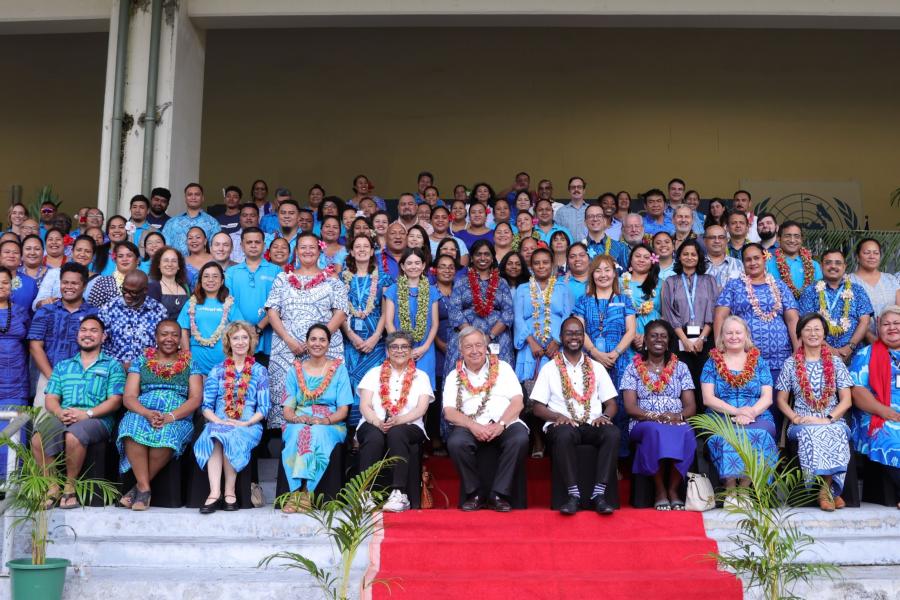Rescuing the SDGs will secure Pacific’s future.
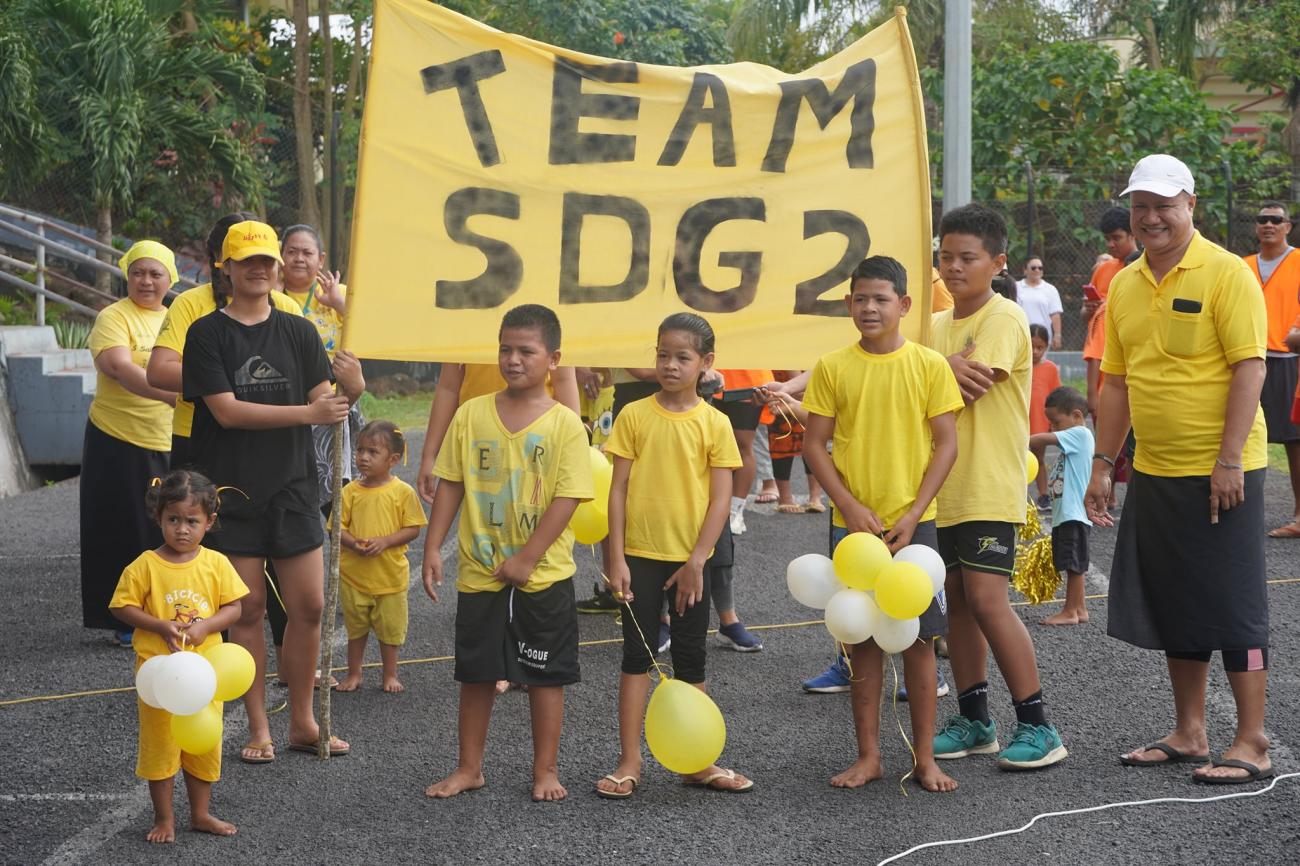
On UN Day 2024, the UN Resident Coordinator Themba Kalua reflects on the urgency to advance the SDGs and build a resilient future for the Pacific.
As we commemorate the 79th anniversary of the founding of the United Nations, we find ourselves at a pivotal moment for reflection, hope, and renewed action. Our world faces mounting crises: climate change with record-breaking temperatures and catastrophic disasters, relentless conflicts causing immense suffering among millions of innocent civilians, widening inequalities, and silent but growing health threats, including non-communicable diseases and rising antibiotic resistance.
For the Pacific, these challenges strike with disproportionate force. Despite contributing the least to global climate change, Pacific nations are among the hardest hit. Rising sea levels pose existential threats to low-lying islands, while ocean acidification, biodiversity loss, and disrupted food systems jeopardize the livelihoods of Pacific islanders, whose cultures and economies are deeply intertwined with the ocean. Meanwhile, global conflicts siphon away crucial resources needed to finance sustainable development and address the pressing climate crisis.
Yet, these challenges only underscore the enduring relevance of the UN’s mission: to uphold peace and security, advance sustainable development, and promote and protect human rights. The United Nations remains the world’s primary multilateral platform, bringing nations together to forge consensus and tackle the existential challenges that threaten humanity.
The Sustainable Development Goals (SDGs), adopted by global leaders in 2015, provide a comprehensive blueprint for addressing these issues. However, according to the UN Economic and Social Commission for Asia and the Pacific (ESCAP), the Pacific is not on track to meet these goals by 2030. In fact, projections suggest that without significant change, the SDGs might not be realized in the Pacific until 2065. Geographic isolation, resource limitations, and the impacts of climate change and economic instability all contribute to this delay.
To secure the Pacific’s future, we must first rescue the SDGs. This year, key global intergovernmental meetings have reaffirmed commitments to these goals. For example, the Fourth International Conference on Small Island Developing States (SIDS4), held in May 2024 in Antigua and Barbuda, adopted the Antigua and Barbuda Agenda for SIDS (ABAS), a 10-year action plan aimed at achieving sustainable development for SIDS. Samoa, as Chair of the Alliance of Small Island States (AOSIS), played a key role in shaping this agenda.
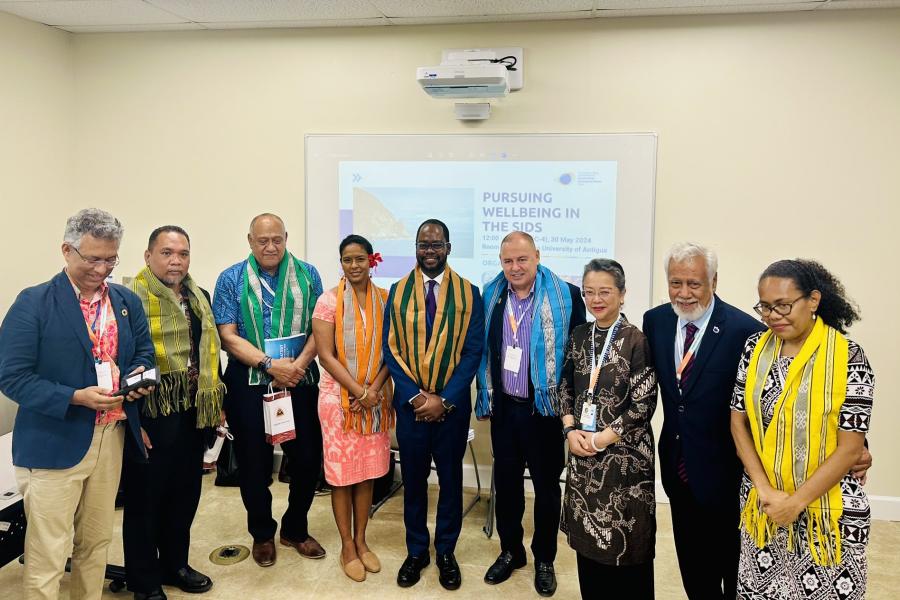
This year, the UN’s commitment to the Pacific was reinforced by the historic visit of Secretary-General António Guterres to Samoa in August which was followed by his attendance of the Pacific Islands Forum (PIF) Leaders' Meeting in Tonga. This visit marked a significant gesture of solidarity, as the Secretary-General witnessed firsthand the devastating impacts of climate change on Pacific communities. From rising sea levels to more frequent cyclones, his engagement emphasized the urgency of global climate action and the UN’s dedication to supporting the Pacific in navigating these challenges and accelerating SDGs progress.
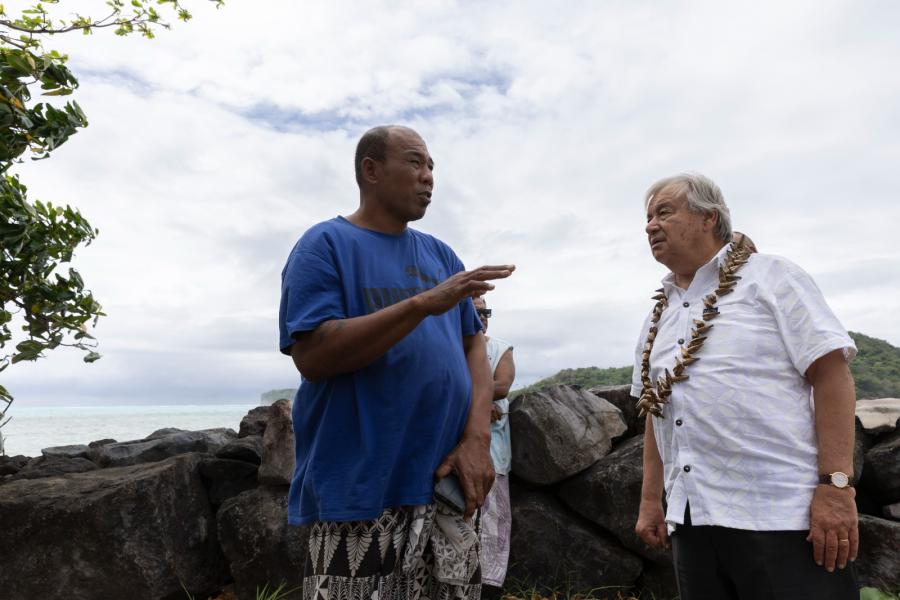
As I write, Samoa is abuzz with excitement, hosting the Commonwealth Heads of Government Meeting (CHOGM), the first Pacific small island state to do so. The discussions at CHOGM focus on strengthening democratic institutions, fostering environmental resilience, promoting economic recovery, and empowering societies—especially women and youth—to live peaceful and productive lives. The issues at the heart of these discussions are critical for small island nations like Cook Islands, Niue, Samoa and Tokelau. With the Commonwealth representing a third of the global population, Samoa’s leadership in driving climate action across these nations offers a unique opportunity to transform the vision of a resilient, food-secure, and SDG-achieving world into reality.
Further momentum came in September when the UN General Assembly adopted the Pact for the Future, the Global Digital Compact, and the Declaration on Future Generations—groundbreaking frameworks to help the international community deliver on the SDGs and ensure that the UN system remains fit to meet today’s challenges.
At the heart of all these global dialogues and commitments is one constant: people, and their fundamental human rights. Human rights are the bedrock of just, sustainable, and resilient societies. Denying people their rights breeds resentment, tension, and conflict—echoes we see in regions of turmoil across the world. Upholding transparency, accountability, participation, and non-discrimination ensures that the benefits of sustainable development reach everyone, leaving no one behind.
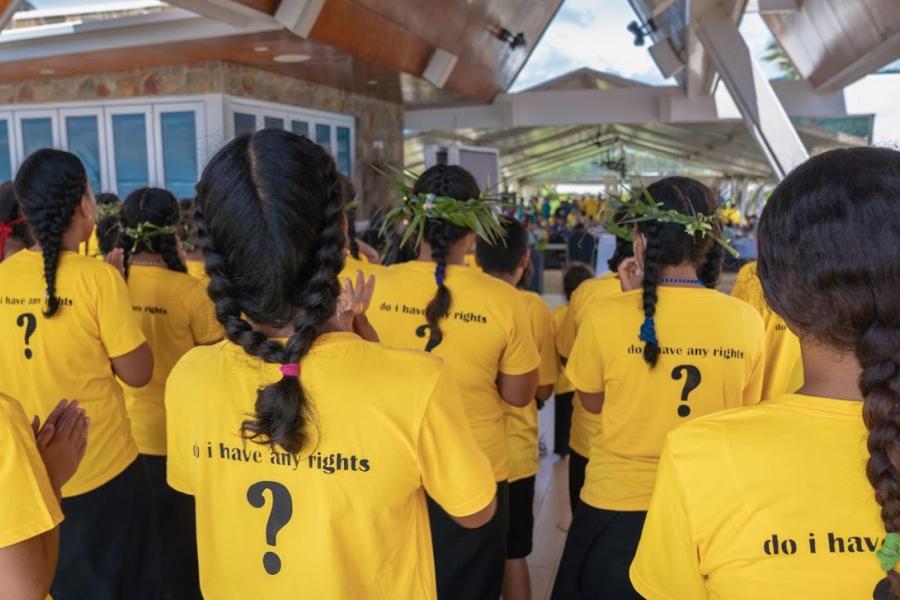
Looking ahead to the UN’s 80th anniversary in 2025, we find ourselves in a moment of both optimism and urgency. With strengthened international support, the UN’s work in the Pacific will continue to drive meaningful change, helping countries such as the Cook Islands, Niue, Samoa, and Tokelau accelerate progress toward the SDGs, implement ABAS and meet their national and regional priorities.
Unlocking the opportunities ahead requires concerted action. Governments, development partners, civil society, and the meaningful engagement of youth, women, and other key groups must come together to build a resilient future. The UN will remain steadfast in its support, standing shoulder to shoulder with the Pacific nations in their pursuit of sustainable development aspirations.
On this UN Day 2024, let us reaffirm our collective commitment to a just, sustainable, and resilient world.
Happy UN Day 2024!
